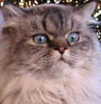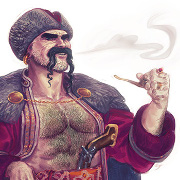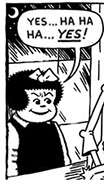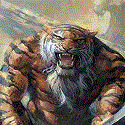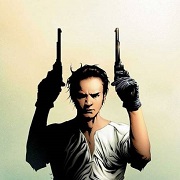|
Ursula K. L Guin has died today - no known cause yet, but she had been in declining health the last few months apparently. I don't know what to say. She's probably my personal favorite author of all time. I've got tears in my eyes - I grew up asking my parents to read and re-read the original Earthsea Trilogy to me when I'd go to sleep at night for like, a few years. Discovering Left Hand of Darkness in my mid-late teens was a big point in my life. The Dispossessed might technically be a better book, but it's that image of Genry and Estraven, finally two aliens alone, pulling a sledge across a never-ending glacier that sticks in my mind. Scenes from that whole part of the book are like etched in my mind permanently. Le Guin would always make these amazing speeches now and then, or write some terribly perceptive op-ed or blog post. I am really, really going to miss that. She was also a noted and prolific lover of cats Oh, there is too much and I'm too emotional - I'm just going to link and paste this NY times article so the OP has some content at least: https://www.nytimes.com/2018/01/23/obituaries/ursula-k-le-guin-acclaimed-for-her-fantasy-fiction-is-dead-at-88.html NYTimes posted:Ursula K. Le Guin, the immensely popular author who brought literary depth and a tough-minded feminist sensibility to science fiction and fantasy with books like “The Left Hand of Darkness” and the Earthsea series, died on Monday at her home in Portland, Ore. She was 88. She was one of those wonderful, extremely rare people gifted with both a clarity of perception and an uncanny ability to communicate that unique perception of hers into her novels. Her prose was always both lovely and always recognizably her own, while also being impossible for anyone else to really duplicate. For example, on a random note, I feel as if certain well-known modern fantasy writers could learn a GREAT DEAL from how perfectly concise and economical the storytelling is in the original Earthsea Trilogy. It is really something to behold - in three small paperbacks of about 200-250 pages each, she tells a huge, sprawling story in an entirely original world that is (in my opinion) as complete and massive and detailed as anything any other fantasy writer has created, and the way in which she does it is also amazing. I could write for paragraphs about the utterly brilliant way she illustrates changes both in our world and in the world of Earthsea throughout the second Earthsea Trilogy. She gets a bit heavy-handed with feminism in Tehanu, but it was a book written in the early 90s when everyone was dealing with feminism in a very heavy-handed way, so it's a book that makes sense when you consider the time in which it was written. The book of short stories and especially The Other Wind are really kind of... joyous, and sublimely perfect in this strange way. I think they're fantastic. I could go on and on about Ms. Le Guin, my apologies. I've just been talking about Earthsea, but we could have equally long and longer conversations about "Lathe" or "Left Hand" or "The Dispossessed" or freakin "Catwings" which are awesome children's stories she did about flying cats! Ah well. I think that out of every single "celebrity" that has ever died in my life, this might be the first one to truly affect me. edit: Ah! Here is probably one of the last times she spoke in public, as she doesn't often do. She said this like 3.5 years ago; pretty prescient: https://www.youtube.com/watch?v=Et9Nf-rsALk Wow kaworu fucked around with this message at 02:05 on Jan 24, 2018 |
|
|
|

|
| # ? Apr 26, 2024 01:27 |
|
lot of testimonials and essays getting posted, of course. Scalzi: http://www.latimes.com/books/jacketcopy/la-et-jc-leguin-scalzi-20180123-story.html Jo Walton: https://www.tor.com/2018/01/24/bright-the-hawks-flight-in-the-empty-sky-ursula-k-le-guin/ quote:“Only in silence the word, Hieronymous Alloy fucked around with this message at 16:12 on Jan 24, 2018 |
|
|
|
|
A real shame. She was an author of genuinely tremendous vision and creativity. The Dispossessed remains one of my favorite science fiction novels ever.
|
|
|
|
A kickstarter-backed documentary film on Le Guin finished filming recently: https://www.kickstarter.com/projects/arwencurry/worlds-of-ursula-k-le-guin/updates
|
|
|
|
|
I'm shameful and have only read LHOD but it's one of the best things I've read so this year will be my year of UKLG There's two nice big new collections of hers, one short stories and one novellas, gonna get both of them soon.
|
|
|
|
J_RBG posted:She's in a better place now ... the literary fiction section
|
|
|
|
Very sad that she is gone. I loved her way with words
|
|
|
Mne nravitsya posted:Very sad that she is gone. I loved her way with words She also wrote a creative writing textbook: https://www.amazon.com/Steering-Craft-Exercises-Discussions-Navigator/dp/0933377460
|
|
|
|
|
I am lucky to still have a great deal of her work to read and sad that the backlog will never get any bigger. I loved Earthsea as a kid and loved it more in a recent rereading of it. She had a productive long life, but no one worthwhile ever lives long enough.
|
|
|
|
Tor.com is collating remembrances here: https://www.tor.com/2018/01/24/the-science-fiction-and-fantasy-community-remembers-ursula-k-le-guin/
|
|
|
|
|
I got into reading Le Guin through a political essay she wrote about Bookchin and I have enjoyed all of her books I've read so far. I'm sad that she died, she seemed like a great woman and was definitely a great writer. I'll be finishing all of her books from my backlog in the next few months now.
|
|
|
|
|
The most interesting thing about Earthsea, and one that everyone up to and including the cover artists forget, is the racial balance of the protagonists. Sparrowhawk is coloured as a native American, and his master Ogion the Silent is black.
|
|
|
|
That's the most interesting thing?
|
|
|
|
|
anilEhilated posted:That's the most interesting thing? Yes? It's not much more than the Heroes Journey again, albeit very well done. But the fact that it was multi-racial and white guys were the baddies in 1968 is important.
|
|
|
|
A Wizard of Eathsea posted:The death of a great mage, who has many times in his life walked on the dry steep hillsides of death’s kingdom, is a strange matter: for the dying man goes not blindly, but surely, knowing the way  anilEhilated posted:That's the most interesting thing? If I remember correctly Ged's skin isn't described until about halfway through the novel, which is a nice little gotcha. As are the hordes of nameless blond and blue eyed barbarian pirates.
|
|
|
|
Ah, this thread title is probably better and less... severe. My thanks, Hieronymous Although perhaps it should be noted that within the universe that particular verse comes from The Creation of Ea, the oldest of all the songs, lays, and chants. I have to say that my favorite little poem she did was Tormer's Lay (I think it was called) from The Left Hand of Darkness. Let's see if I can get this right: quote:Light is the left hand of darkness I was just watching her read the first chapter of Wizard of Earthsea live, and it's really freaking cool to hear her speak the goat-calling rhyme - it's like, reading the words on paper just seems like a pale imitation of hearing her speak them the way a true wizard would.
|
|
|
Jedit posted:Yes? It's not much more than the Heroes Journey again, albeit very well done. But the fact that it was multi-racial and white guys were the baddies in 1968 is important. I'd say "important" and even "revolutionary" but as to "interesting" I'd set a number of other aspects of the Earthsea books above it. First off is always her prose, spare and elegant, and at moments flashing, like the best parts of the King James Bible; past that, while the Earthsea books don't really show much of her economic or political thought, there's almost as much of Taoism to explore in Earthsea as there is catholicism to explore in Tolkien. And then, of course, gender issues all through. Skin color is a neat detail (from the very beginning, white people are loving things up and invading!) but isn't treated in the same depth. You could probably do a good series of compare and contrast papers analyzing the Earthsea books as a response to Tolkien's catholicism (or to the pervasive "battle of Good vs Evil" in most fantasy generally) and The Dispossessed as a response to Heinlein's libertarianism (or to the libertarianism of "Golden Age" SF generally). Hieronymous Alloy fucked around with this message at 04:42 on Jan 25, 2018 |
|
|
|
|
Glad I recently reread The Dispossessed and its fresh in my mind. My god she had an impact on my entire world view--opening my eyes to possibilities beyond what I was taught. A true revolutionary.
|
|
|
|
|
Atwood's take: https://www.washingtonpost.com/ente...m=.127edc4e29f9
|
|
|
|
|
https://twitter.com/belledejour_uk/status/956187596215926785
|
|
|
|
|
It's a sad contribution to this thread - I regret that I've only ever read the first book of the Earthsea trilogy (I plan to read more this year) - but in case anyone wanted to grab some of her stuff, the Kindle version of The Lathe of Heaven is $0.99 USD today.
|
|
|
I just read the first two Earthsea books for the first time, and they were fantastic. I'm sad I never read her stuff while she was still alive 
|
|
|
|
Dramatika posted:I just read the first two Earthsea books for the first time, and they were fantastic. I'm sad I never read her stuff while she was still alive don't stop now!
|
|
|
|
|
I read A Wizard of Earthsea last week for the first time and loved it. I'm about to go to the library so I think I'll grab the next one. Are all of the Earthsea books worth reading?
|
|
|
Hieronymous Alloy posted:don't stop now! I didn't have the third one prepurchased on my Kindle and started on Jemisin's Inheritance trilogy on my flight. Should I suspend that and get back on the Earthsea? Maybe after I finish the first book?
|
|
|
|
Dramatika posted:I didn't have the third one prepurchased on my Kindle and started on Jemisin's Inheritance trilogy on my flight. Should I suspend that and get back on the Earthsea? Maybe after I finish the first book? https://twitter.com/nkjemisin/status/955935985199714304
|
|
|
|
|
Japanese Dating Sim posted:It's a sad contribution to this thread - I regret that I've only ever read the first book of the Earthsea trilogy (I plan to read more this year) - but in case anyone wanted to grab some of her stuff, the Kindle version of The Lathe of Heaven is $0.99 USD today. That deal is over, but another classic is on sale, Delaney's Babel 17 https://smile.amazon.com/Babel-17-Samuel-R-Delany-ebook/dp/B00HE2JK4Y/
|
|
|
|
Are there any really nice hardback copies of the Earthsea books, like the Earthsea equivalent of the red leather edition of Lord of the Rings? I love my old weathered paperbacks, but for years now I've been telling myself I'll invest in something with more longevity that also looks good on a shelf and doesn't have the garish Harry Potter-inspired covers of recent editions. The only ones I've found so far are the Earthsea Sextet, which, while very much my style, is nine hundred dollars Kestral fucked around with this message at 20:42 on Feb 26, 2018 |
|
|
|
Easton Press did a set, but they're out of print and the price on the secondary market reflects that. My advice is to look for old hardcovers from Gollancz; anything that's not a 1st/1st should be pretty affordable, even in good (or better) condition.
|
|
|
|
|
I have been listening to the audio version of The Left Hand of Darkness very attentively and slow for the last few days at night before I sleep, bit by bit. I (and probably so many others) are so used to 'multi-tasking' in one way or another. Listening to a book on tape while playing certain video games was something I used to do all the time, for instance - or even really basic stuff like listening to a book while driving, working (if you can), or just doing any sort of menial task. Anyway, those were the times when I generally listened to books on tape. But for the first time in a while I've just been putting on Left Hand and lying there in the dark and letting it all wash over me - I've read the book at least a dozen times so I did not think anything would really surprise me, but it's truly amazing what an incredible difference there is between reading a book, and listening to a book - especially a Le Guin book like this one. At the moment, I've only reached the point where Gen(r)y has gone to see Faxe and the Foretellers, and I have to admit I am kind of... stunned at just what a difference it makes to listen to this particular book on tape. Although it is narrated by a man, that man is George Guidall who is very experienced and very very good at what he does. The Gethenians sound both distinctly alien and human, which he pulls off well. As he performs them they are soft spoken and effeminate at times and cold and direct at other times. The thing is... It actually kind of solves the horrible Pronoun Problem of the book, which Le Guin has written about extensively in at least the afterword of one hardcover edition I bought, I think the 25th anniversary edition which was the first one I read. That book had several appendices where she altered the pronouns in that key scene between Genry and Estraven in the tent - when Estraven is in kemmer and they mindspeak for the first time, and the sexual tension sort of comes to a head and is acknowledged between them, which does not lead to sex but a deeper kind of intimacy... At least in my interpretation. I'm sure everyone remembers the scene - it's the central scene in the book. Anyway, in that edition Le Guin takes that scene (as told from Genry's POV of course) and in an appendix replaces all masculine pronouns referring to Estraven with invented neuter pronouns. Then she takes the same scene again, and keeps the male pronouns until it becomes clear to Genry that Estraven is in Kemmer, at which point the pronouns referring to Estraven switched to feminine. Both of them - but especially the latter - was quite jarring in how it radically changes how you interpret and view the scene, and just makes you aware of both what an incredibly powerful yet delicate concept the novel truly uses with regard to the Gethenians. But again, to get back to the Audiobook... Because the novel is being [i]performed[i] verbally, the pronouns become far less important and MUCH easier to ignore in lieu of the wonderful androgynous voices that Guidall uses - it's not TOTALLY PERFECT but so far he's done a drat good job with a drat hard book to do a high-quality audiobook recording for. Like for instance, the King sounds appropriately appropriately androgynous but in a high-pitched and somewhat cloying/insane voice (appropriately so) tittering oddly now and then - while the weaver Faxe also sounds androgynous but in a tranquil and unhurried manner. My point is, that same androgynous timbre is consistent throughout all the characters but Genry, and it honestly changes my perceptions of many scenes. Reading the book, even knowing that the Gethenians are meant to be totally androgynous, the male pronouns STILL hold this concept back, and you cannot HELP but think of the Gethenians as essentially more like men with some feminine traits when they enter kemmer, rather than as true androgynes - which is what they truly are. In a way, I think part of this is actually apropos and in line at least with Genry's perceptions of them throughout most of the book, but the usage of male pronouns is ultimately still something of a stumbling block in understanding who and what these people are, according to both myself and to Le Guin. I am just honestly AMAZED at what an audiobook can change your perceptions of the characters in this book, as I said. And it's an absolute pleasure and a joy to listen to even if you've already read it several times, at least in my opinion, Sorry for the, uh, long post. Apologies in advance for any dumb mistakes I made because I don't have time to proofread and have to go
|
|
|
|
Speaking of her sound: https://daily.bandcamp.com/2018/03/...of%20the%20Kesh
|
|
|
|
|
Is there a collection like Orsinian Tales for all her Hainish novellas and short stories? I've been reading The Unreal and the Real collection, and "The Matter of Seggri" and "Solitude" are my favorites. I'd love to grab a collection of all her anthropological science fiction if there is one.
|
|
|
|
Hieronymous Alloy posted:Speaking of her sound: Oh my, this is really fabulous, thank you so much for linking it. I had NO idea this music existed! This sort of thing is what I love about her anthropoligical approach to world-building - she really and truly thinks through the details and the most basic, practical questions that are so obvious that you don't think to ask. The truth is, we take a great deal of our cultural context for granted. As humans, most of us are only capable of analyzing art or literature or aesthetics within the cultural contexts that we know - and it is *surprisingly* difficult to have to let go of all of those assumptions and beliefs that we take for granted as universal and view anthropological remnants of cultures from a TRULY objective place. I remember being taught this lesson by a sharp-tongued French anthropologist on a visit to... I think it was the Caves of Gargas, while I was in southern France. Like ~25,000 year old cave paintings. There were lots of animals - horses, bison, similar looking animals, as well as rather carefully done handprints. I was 12 at the time and more ignorant than I am now - I made some comments trying to analyze or understand why they were SO many seemingly repetitive paintings of bison-looking creatures, and the tour guide chided me each time for making unwarranted extrapolations and trying to analyze the paintings based on the value and belief system that I grew up in, where symbols and art already had a predefined place and form in our culture. Yet I cannot put the cave paintings in those categories, he told me, as they come from a culture with a lifestyle and values entirely and totally different. One thing I noted that he approved of was a comment I made where we got to the end of the cave after a few hundred yards, maybe longer - it was certainly the kind of REAL pitch black and Real Dark that you ONLY would get in a place like a cave. But we got to the end of the cave and the narrow constricting and frankly cave-like environment gave way to this.... large, circular, high-ceilinged room. You could FEEL and smell the open air, and the place just... immediately had a charged atmosphere. I immediately said "This feels like a church", which got a big smile out of the tour guide, because it was probably among the most perceptive things one could say about the place. It *did* feel like a church; the energy was different somehow - almost electric. I thought about how 25,000 years ago men had discovered this place, and what did they do with it? They did not live within it, even though it was shelter. They made a real effort to walk ALL the way to the very end of the cave - which is not an easy or clear journey even with the proper footwear, flashlights and floodlights in the first area, and a proper guide. Even then there were plenty of wrong terms to make and perilous pits littered here or there, now blocked by installed guardrails. And yet at the end in that big, church-like open area where no natural light could ever possibly reach, there were dozens of ornate and beautiful paintings of wildlife, hands which I assumed were maybe signatures of them sort, but undoubtedly human handprints. It's a stunning and inspiring experience. I am sorry for that derail, it just... It was a very important lesson.
|
|
|
|
So I've read it again after listening to it, and I really do feel at last that I understand the book, and what was going on with Estraven and his previous relationship with his brother, and lots other things. I had never quite grasped before, for instance, how Estraven does in fact increasingly break just about each and every significant taboo in Gethenian society, for instance - and almost every instance is in the cause of aiding Genly Ai's mission, something he believes in with more conviction than Genly himself, who is rather and ignorant and unaware of the weight of what Estraven sacrificed for him at the time it happened - though he is very much aware of it as the narrator of the book, at an indeterminate point in the future when Genly is apparently writing this book. We know this both because of the tone of the book and because we only truly ever hear directly from Genly's POV. Everything from Estraven's point of view is taken from his journals, which we know Genly was in possession of and had access to. The other bits and pieces of mythology or 'hearth-tales' are all cited as from sources like an historical foundation located in Erhenrang, or some such - which Genly would also have had access to. In that sense, it made me realize that this is very much a book compiled and written and edited by Genly Ai, and while it is generally dealing with Genly Ai the Envoy bringing Gethen/Karhide into the Ekumen, it is much more about the story of Genly Ai's relationship with Estraven - his journey in finally understanding how it is in that one single relationship the envoy may or may not make with another that is the reason why the Ekumen insist on a lone envoy, insist on "making things hard for us", as Estraven puts it at one point. I think it's an important point, because it is the trust and very real and intense love born from that one single relationship that makes it possible to accomplish the mission in the end. But also, the book is indirectly about Estraven's past. I had often wondered about why Le Guin wrote the 'myths' that she did in the book, and I believe two of them are very significant in understanding Estraven's past, and why he does what he does and breaks so many deep Gethenian taboos in the book. The first myth, "the place inside the blizzard" I think it's called? It's actually quite an obscure story and oddly placed - we will not understand the context and meaning of the story, truly, until we reach the end of the book. The story is about two brothers who fall in love, have a child, and vow kemmering to one another (the quivalent of marriage). On Gethen (or perhaps just Karhide), incest is permitted (though never intergenerational incest), and not incestual marriage between brothers either. Once a child is born, the two brothers must separate and may not partner/kemmer together any longer. This tale involves the breaking of this taboo, obviously - and the lord naturally forbids this, which ultimately drives one of the brother to kill himself - the greatest of all Gethenian taboos, suicide is never tolerated and thought of as the worst act a person could make - worse than murder for example. This causes the other brother to be driven out of the hearth and exiled, and his story continues - he curses his hearth and meets his brother in the place where suicides go when they die, but is saved and survives albeit marked - but it is the relationship between the brothers that is important. OK, now I have to talk about Karhidish names for a bit, because things get slightly odd with the next story in terms of mirrored names. The next important story is called "Estraven the Traitor". The titular Estraven in the tale is not our Estraven, but his ancestor (remember that Estraven is a land-name, "one who comes from the place of Estre," and that our Estraven's full name is 'Therem Harth rem ir Estraven' - when he goes to Orgoreyn where they have no hearths he is known simple as 'Therem Harth'. The second name, Harth, refers to the matrilineal line - remember that the one significant parent a Gethenian has is his "parent of the flesh", that is the individual who bore him - in Karhide, it is to this individual's house and hearth that the child is raised in. For example, we know that our Therem Harth rem ir Estraven had a full (older) brother named Arek Harth rem ir Estraven, and we know that they had a child together named Sorve Harth rem ir Estraven, and we know they (like the brothers in the earlier story) broke taboo by vowing kemmering. We know this because Estraven pointedly tells his later Kemmering, Ashe, that their vow was a "false vow" and a "second vow" as he leaves Karhide as an exile. One can easily surmise with whom he had his first vow, and it explains why he is apparently exiled from Estre - this is all further confirmed by their child Sorve's presence at the end of the novel, when Genly visits Estre. We also know that Arek is dead (it is never said why) but It seems reasonable that it was suicide - this would properly mirror the story and explain Estraven's exile, his inextinguishable anguish, his regret and unease at even speaking of his brother, and the fact that we never hear the reason for his death said aloud by anyone. I like to think it wasn't suicide, but it seems to fit - ultimately we are given no clear reason for Arek's death. In any case! The other significant story, 'Estraven the Traitor," about Estraven's ancestor - Arek of Estre. The story takes place in the midst of a blood feud concerning land rights between the clan of Estre and the neighboring clan of Stok. The young Lord of Estre - named Arek, is skiing overland hunting pesthrie when he falls through some rotten ice. He manages to get his skis off and get free out of the frigid water, but wanders around half-dead until dark. He sees a light though and finds a small cabin, finding another young man living alone there. The man gets the stiff icy clothes off of Arek and naked by the fire uses his own body and heat to massage and work his near-frozen body back to life. Arek introduces himself as Lord of Estre, and the other man introduces himself as Therem of Stok. They're both entering kemmer and while agreeing that they are mortal enemies, immediately fall totally crazy in love and vow kemmering, spending 3 days in happiness until Therem of Stok's hearth brothers, out looking for him, find the cabin. They shoot and kill Arek of Estre on sight, seeing him and knowing him for the Lord of Estre. Therem of Stok tells his men to take the body back to Estre, which they do not do - this angers him and the people in Estre look in vain for their lord's body, and Therem of Stok banishes the three men and then promptly vanishes from Stok. Maybe around 9 or 10 months later a hooded stranger leaves a newborn at the hearth of Estre, explaining that his name is Therem. The old lord of Estre, named Sorve (whoa), takes him in, apparently seeing the features of his son Arek, and eventually names him Heir. His hearth brother's aren't too thrilled about this and try to ambush him one day hunting, but he manages to slay them all and survives, albeit injured. He wanders until dark until he sees a lighted cabin, and begs the older man inside for help, which he does, treating and binding his wounds and letting him rest. The older man is of course Therem of Stok, parent-of-the-flesh of young Therem, heir to Estre. They realizing this putting their palms together and realizing they are the same. Therem of Estre eventually makes peace with Stok and ends the blood feud, ceding a fair amount of land to Stok. And for this, young Therem of Estre (the result of the all-too-brief union between Arek of Estre and Therem of Stok) came to be known as Estraven the Traitor. So... Hoo boy, all those names, you know? I know I ended up just kind of summarizing things there, but I hope my emphasis on the names made some sort of point. This story, in combination with the story of forbidden love between the two brothers, says some very specific things about Estraven. And Le Guin/Genly Ai no doubt included the stories to very pointedly to try to explain why and how Estraven was already an exile and a deeply complex man with equally complex motives from the very start. We also know that Estraven is aware of these histories, these hearth tales, especially the latter. He knowingly named the child he had with Arek, "Sorve" - which is fittingly ironic and sad and shows his understanding of the turn of the wheel. He, like his ancestor, dies as Estraven the Traitor... though not all men call him that, as we are told. What truly links these stories together with Estraven is the breaking of taboo. As I said before, our Estraven breaks nearly every taboo Gethen and Karhide has. He first vows kemmering with his brother - a very big taboo, and we've discussed what is results in quite enough at this point. Then he breaks the taboo of channeling his own wishes and desires above that of the King by way of a certain belief in what he feels is universally right, as opposed to right for Karhide, and the King essentially BEING Karhide it need also be right for the king. This is a big error in shifgrethor and is what results in his charge of treason and proscribement from Karhide. He breaks a serious Gethenian taboo by stealing a great deal of the expensive and lightweight gichy-michy superfood that they need to survive their trip. The mindspeech he learns is probably another taboo broken in an odd way, as it seems to come as a violation of sorts to Estraven, and no wonder. He even breaks taboo merely by giving Genly direct advice about what do - something that simply isn't done and is what kinda has Genly thrown for a loop initially, as he starts by taking Estraven purely at face value. The last and biggest taboo is when Estraven kills himself at the end, skiing directly into the border guards, knowing he would be shot and killed, knowing that it was the best and only option he had and knowing that long days before Genly did. The last part of the book, when Genly and Estraven are at the end of their journey and traveling in Karhide, read so unbelievably tragically this time around. Because Estraven knows that whole time that he would never be able to truly live in Karhide or Orgereyn ever again, unless he favored being in a volunteer farm. He knew his death would greatly strengthen Genly's shifgrethor in the eyes of ALL of Gethen and ensure safety for him. Except the complication that a deep and legitimate and abiding love had sprung up between him. And at brief moments Estraven seems to allow for hope, but he just as easily may have been lying for Genly's sake. I think it's the latter, especially since he lies *so much* for Genly's sake throughout the book, directly or indirectly. Oof. I'll stop with that paragraph, that last paragraph more or less sums up the most salient points... Again, apologies for the length. As the preacher said, I could write shorter sermons but once I start I get too lazy to stop.
|
|
|
|
https://twitter.com/EricColossal/status/1016890881868214272 https://twitter.com/EricColossal/status/1016892051705749505
|
|
|
|
|
So, shamefully, I've never read any LeGuinn. Where should I even start?
|
|
|
|
CroatianAlzheimers posted:So, shamefully, I've never read any LeGuinn. Where should I even start? The Left Hand of Darkness or The Dispossessed one of the two
|
|
|
CroatianAlzheimers posted:So, shamefully, I've never read any LeGuinn. Where should I even start? Depends on what you're looking for but the original three Earthsea books are probably the best general starting place. Read The Dispossessed if you always wanted to read a Communist version of The Moon is a Harsh Mistress. Read Left Hand of Darkness if you want gender discourse in your sci-fi.
|
|
|
|
|
yeah earthsea I guess would be better
|
|
|
|

|
| # ? Apr 26, 2024 01:27 |
|
Earthsea is a great start. Any collection of her short fiction is also a good place to start.
|
|
|






